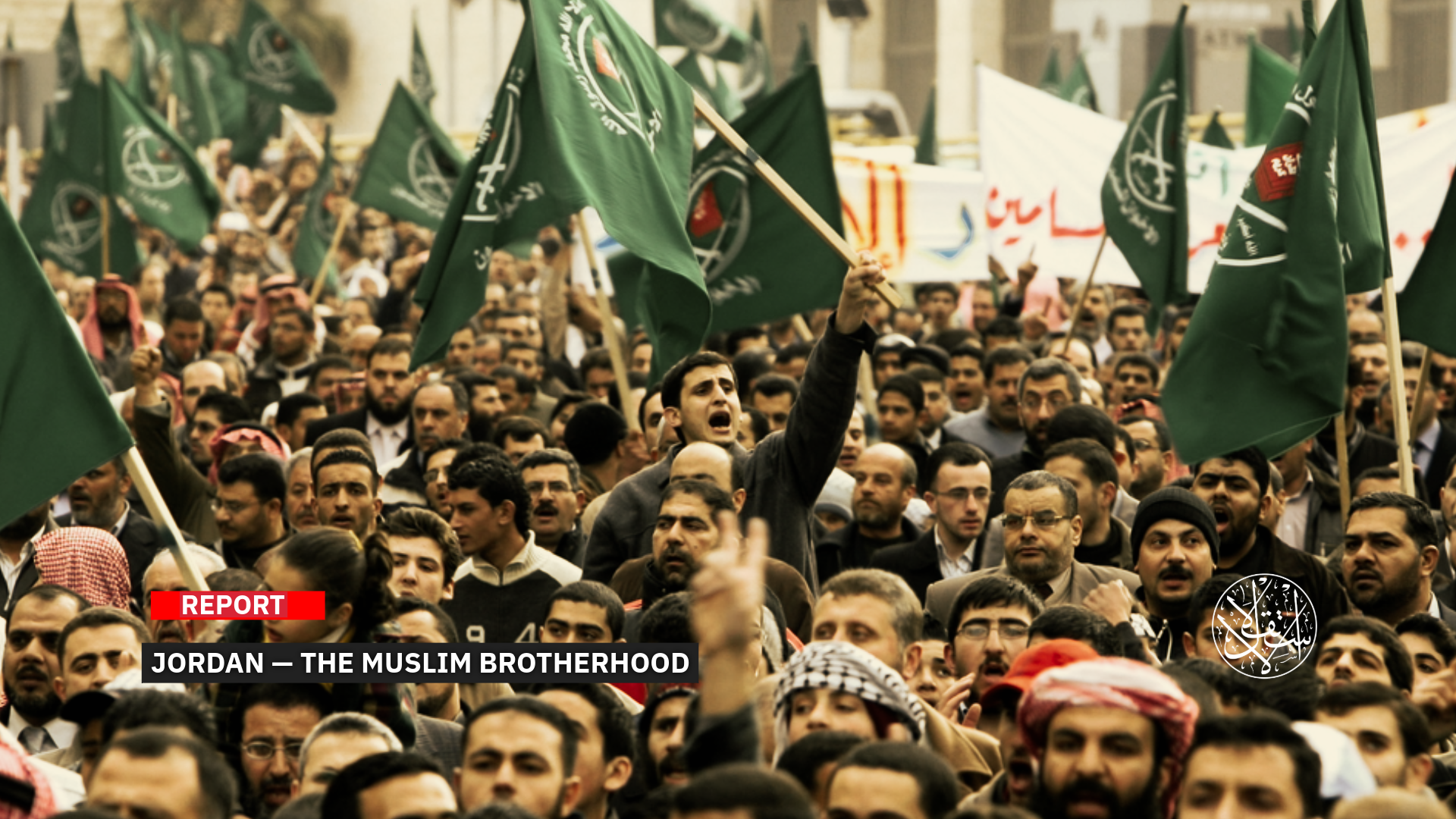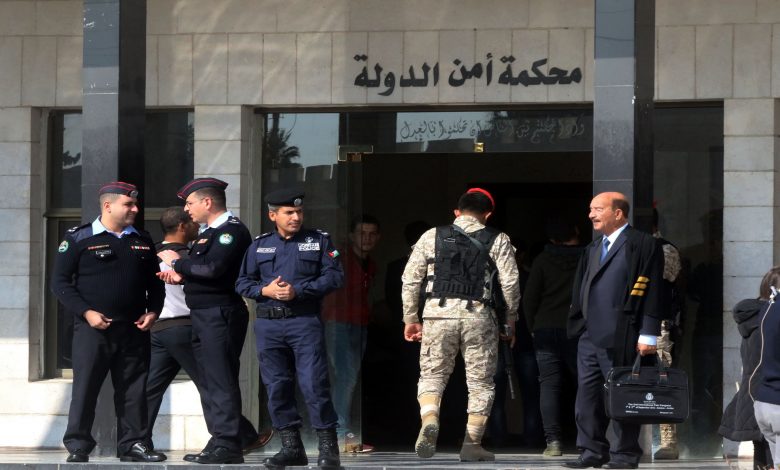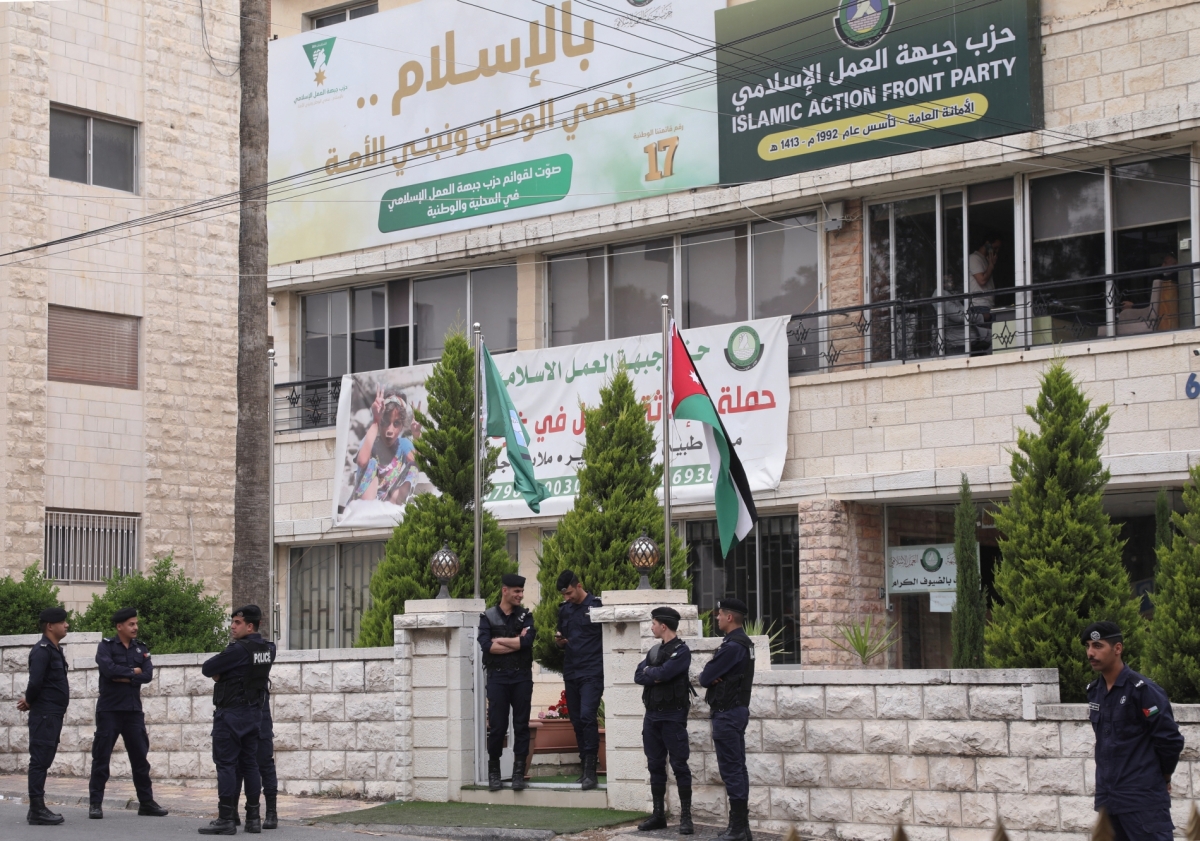Escalating Measures: How Jordan Is Cracking Down on the Muslim Brotherhood

The authorities accused the Muslim Brotherhood of “illegally collecting funds.”
Following Jordan’s decision to ban the Muslim Brotherhood, authorities have continued to take action against Islamic activism and charitable work, especially those linked to Gaza. This has included the arrest of hundreds of Brotherhood members under what’s been described as “administrative detention.”
On April 23, 2025, Jordan’s Interior Minister Mazin al-Farrayah announced the ban on all activities of the Muslim Brotherhood, declaring it an illegal organization. He stressed that joining or promoting the group’s ideas would now be a punishable offense.
Using the Courts to Silence the Movement
As part of a series of measures targeting the Brotherhood, Jordan’s Constitutional Court ruled on July 17, 2025, that the 2011 Teachers’ Syndicate Law and all its amendments were unconstitutional, effectively dissolving the union.
The government has long accused the Brotherhood of controlling the Teachers’ Syndicate since its reactivation in 2011, following a wave of teacher-led protests and strikes in 2010 that disrupted education nationwide.
The court ruling came one day after the government accused the Brotherhood of illegally raising around 30 million Jordanian dinars (about $42 million).
According to a report by the state-run Jordan News Agency (Petra) on July 16, investigations found that the Brotherhood had been engaged in “illegal financial activity,” which intensified over the past eight years.
The report alleged the group ran “a large and complex financial network funded through donations, investment returns, and member subscriptions.” The report asserted that the group has raised over 30 million dinars in recent years.
The Brotherhood was also accused of “exploiting the Israeli war on Gaza to collect donations without transparency or coordination with international or humanitarian organizations.” Petra reported that only a small portion of the funds reached the Jordan Hashemite Charity Organization (JHCO), while the rest was funneled abroad through “currency exchange offices or smuggling.”
Before that, the Companies Control Department referred “Montada Alosra” (Forum for the Training and Empowerment of Women and Children) to the public prosecutor over “alleged violations,” including failure to submit its 2024 financial records or disclose its real beneficiaries.
On July 9, Petra also reported that the Ministry of Social Development had referred three additional organizations, the Jordan Anti-Drugs Society (Green Crescent Jordan), al-Urwa al-Wuthqa, and the Sawaed Elattaa Initiative, to the public prosecutor over “administrative violations and illegal fundraising.”
The agency added that following legal proceedings, the board of Prairie Flower Charity decided to dissolve itself. The ministry is monitoring another economic association led by Brotherhood-linked businessmen and headed by a former MP, whose name was not mentioned.

‘Abusive Administrative Detentions’
Since the beginning of “Israel’s” war on Gaza and the massacres committed against its besieged population following the events of October 7, 2023, Jordanian authorities have launched a wave of arrests targeting hundreds of activists and members of the Muslim Brotherhood, simply for speaking out against the Israeli Occupation crimes.
On July 12, 2025, the Reform Bloc in Jordan’s parliament submitted a memo to the prime minister, calling for action regarding the activists held under administrative detention for political reasons.
The memo, presented by MP Ahmad al-Raqab from the Islamic Action Front, stated, “We are a state of law and institutions. How is it acceptable for a group of young people to be imprisoned for over six months under the pretext of so-called administrative detention?”
Al-Raqab argued that such detentions are unjustified and have damaging psychological and social effects on both the detainees and their families. He urged the government to take meaningful steps to move past bureaucratic obstacles and limit the harm.
He also named the detained activists Abdel Rahman Abu Sharkh, Naeem Jaabou, Jihad Atiyah, and Adnan Abu Arqub.
Nearly a year ago, on July 7, 2024, thousands of Jordanians took to the streets in support of the Palestinian people in Gaza and their resistance to the Israeli Occupation. The protesters called for the release of activists detained for expressing solidarity with the Palestinian Resistance Movement.
The protest, organized by the Islamic Action Front reaffirmed public backing for the Palestinian Resistance factions as a legitimate means to confront “Israel’s” aggression and end its occupation.
During the rally, Murad al-Adeileh, General Supervisor of the Muslim Brotherhood in Jordan, urged the government to turn a new page, strengthen national unity, and release all detainees of conscience, including Islamic Action Front leader Naeem Jaabou and political activist Ayman Sanduka.
The National Forum to Support Resistance and Protect the Homeland stated that the arrest of writers, journalists, party members, and political activists for expressing their opinions on public matters is an unacceptable approach that widens the gap of trust between the people and their institutions and undermines the political reform system.
In a statement on July 7, 2024, the National Forum called for the release of Heba Abu Taha, Naeem Jaabou, Ayman Sanduka, and others detained for their opinions, and the amendment of all legislation restricting freedom of expression, particularly the Penal Code and the Cybercrime Law.
In 2024, Human Rights Watch reported that hundreds of activists had been brought before Jordanian courts. While many charges were eventually dropped, authorities often re-detained individuals through the Ministry of Interior, using what the organization called “abusive administrative detention procedures.” Some detainees were reportedly forced to sign pledges not to protest or incite protests, under threat of heavy fines.

Incitement Campaigns
Alongside the government’s crackdown, a wide-ranging media campaign targeted the Islamic movement, both the Muslim Brotherhood and its political arm, the Islamic Action Front Party. Much of the criticism centered on the issue of the group’s finances, with authorities accusing them of illegally collecting millions of dollars.
Jordanian writer Mohammed Kamel described the government’s moves as part of “a deliberate and long-term strategy to gradually remove the Brotherhood from the country’s political and social landscape, not as a short-term reaction, but as a calculated process rooted in political and security concerns.”
In a July 20 column for the al-Rai newspaper, the writer claimed the Brotherhood often prioritized its organizational interests over national ones and maintained an ambiguous discourse that clashed with Jordan’s national security priorities.
He argued that “the state chose not to pursue a direct ban but instead worked quietly through legal and institutional channels to dismantle the group’s influence, revoking its legal status, supporting alternative platforms more aligned with the constitution, and reinforcing a civil state framework.”
Journalist Salah al-Abbadi alleged in a July 17 TV appearance that “the Brotherhood had raised millions of dinars over the years in the name of supporting Gaza but claimed that less than 1% reached Palestinians.” “The rest went to internal spending, salaries for the group’s leadership, political financing for the Islamic Action Front, and real estate investments both inside and outside Jordan,” he said.
Al-Abbadi also claimed that “the political wing benefited directly from these financial networks, using them to fund campaigns and public outreach, raising legal questions under Jordan’s new political parties law, which requires transparency and prohibits financial ties to banned organizations.”
He further alleged that “the group ran training camps in areas like Jerash and Zarqa, aiming to recruit students, mimicking the structure of a parallel state.”
“Despite these claims, the government maintained a cautious approach, opting for legal proceedings and gradual steps, such as dissolving the Teachers’ Syndicate, which was suspected of having Brotherhood ties, to preserve domestic stability,” according to the journalist.
Following the launch of Operation al-Aqsa Flood in October 2023, the Brotherhood reasserted its presence in the Jordanian streets, organizing large-scale demonstrations condemning Israeli Occupation atrocities in Gaza.
Reflecting this renewed momentum, the Islamic Action Front won a sweeping 31 out of 138 seats in the parliamentary elections. However, the future of those seats remains uncertain in light of the recent decision to outlaw the Brotherhood and prosecute anyone affiliated with it or promoting its ideology.
Sources
- Fate of Jordanian Activists: Arrested for Backing Resistance
- New Escalation Against the Muslim Brotherhood in Jordan [Arabic]
- Jordan: New Cybercrimes Law stifling freedom of expression one year on
- Jordanian Writer: Muslim Brotherhood Training Camps in Jerash and Zarqa? [Arabic]
- Jordan: Accusations Against the Muslim Brotherhood Involved in "Illegal Financial Activities Worth Millions" [Arabic]
- Jordan: New Investigations into the "Banned Muslim Brotherhood" Case Target Associations and Companies [Arabic]










